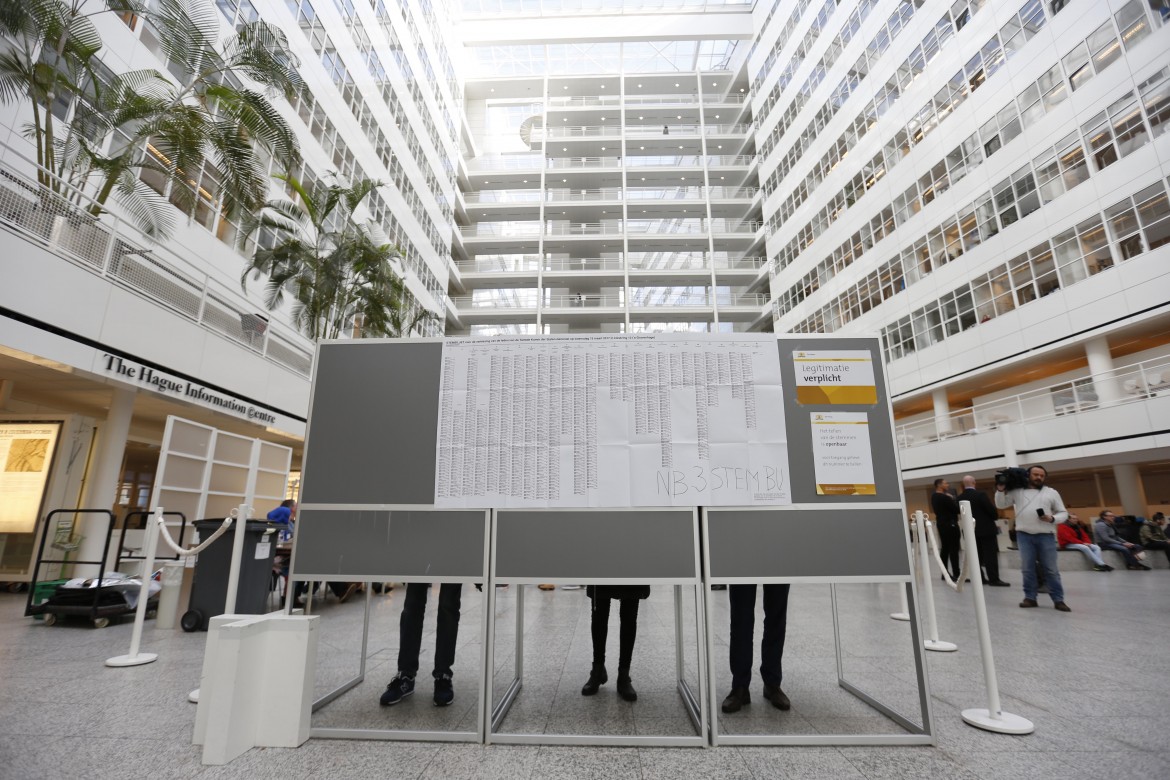Analysis
Why Wilders lost and what it means for Europe
The victory of Prime Minister Mark Rutte was a blow to the extremists. Meanwhile, the far left surged, and anti-European factions in France and Germany shivered.

Europe can breathe a sigh of relief. The populist wave that threatened to flood the Old Continent was blocked before it started.
The dreaded victory of Geert Wilders in the Dutch parliamentary elections didn’t happen. The far-right leader, who had promised to close the borders to immigrants, expel the Moroccans and then steer the country out of the E.U., won 19 seats. He is way behind the DDV Liberal Prime Minister Mark Rutte, to whom the voters awarded 31 seats, and on par with the CDA Christian Democrats and the D66 left liberals, both of which won 19 seats.
As expected, but nevertheless sensational, was the success of GroenLinks, the Green Left led by Jesse Klaver. His party was the true revelation of these elections, which quadrupled its number of representatives and earned 16 seats. Wilders’ Freedom Party won a feeble second place, undermined overnight by the CDA and D66. This puts an end to any ruling ambitions the white haired, right winger.
From Marine Le Pen to Matteo Salvini to populists across Europe, we can put our hearts at peace, at least for now. ”The voters still trust us with their confidence,” was the first statement by the staff of the Liberal premier last night.
Europe can now look with confidence toward the upcoming elections in France and Germany, and several factors have made that result possible. One factor surely is the firmness shown by Prime Minister Rutte in the diplomatic row with Turkey on the eve of the vote, and that may have also reassured the portion of the Dutch electorate most frightened by the presence of immigrants in the country.
Paradoxically, however, the large Turkish community in the Netherlands has contributed to the advance of Klaver’s Green Party. Turkish President Erdogan urged them “not to vote for the racist,” but mostly, frightened by the consequences of an eventual Wilders’ victory, in the end they may have seen in Klaver, 30, the son of a Moroccan father and an Indonesian mother, the ideal candidate.
No doubt, however, that these elections have been among the most heartfelt and participatory elections in the Netherlands. This is evident in the high voter turnout, 82 percent, versus 74.6 percent in the 2012 elections. Long queues formed first thing in the morning in front of polling stations throughout the country.
For Rutte, who nonetheless lost 10 seats compared to 2012, new problems begin now. After the euphoria of the victory, the prime minister will have to find 76 MPs (out of 150) needed to form a majority to govern. He cannot count on, or at least not rely much upon, the PvdA Labour party, his coalition until yesterday. As predicted in pre-election surveys, they’ve imploded with a loss of 29 out of 39 seats.
The Prime Minister will have to seek support elsewhere.
In recent days, he hasn’t ruled out alliances with the left-wing D66 and CDA Christian Democrats, or even the ultra-conservative Protestant Christian Union. In theory, even the Greens have opened the doors, even if the distance between the two teams is significant. It is a complicated job, so it might take a long time.
In 2012, it took Rutte 54 days to come to an agreement with Labour that would allow the formation of the government. It is not clear if now things can proceed more quickly.
This is the second time in a few months that the fears of a populist victory have been dashed at the polls. In December, Austrians rejected the extreme right presidential candidate Herbert Hofer, in favor of the Green leader Alexander Van der Bellen.
Wilders has proven that, outside of opinion polls, the watchwords of populists still struggle to win over voters.
Not surprisingly, the comments around Europe betrayed relief about the narrow escape. “Serious approach of centre-right & [CDA] has been rewarded. We need clarity & strict demarcation from the radicals,” tweeted the president of the European People’s Party Manfred Weber.
“I’m relieved, but we must continue to fight for an open and free Europe,” wrote the former president of the European Parliament Martin Schulz, the SPD candidate for German chancellor.
Originally published at https://ilmanifesto.it/wilders-non-sfonda-lolanda-sceglie-leuropa/ on 2017-03-16
